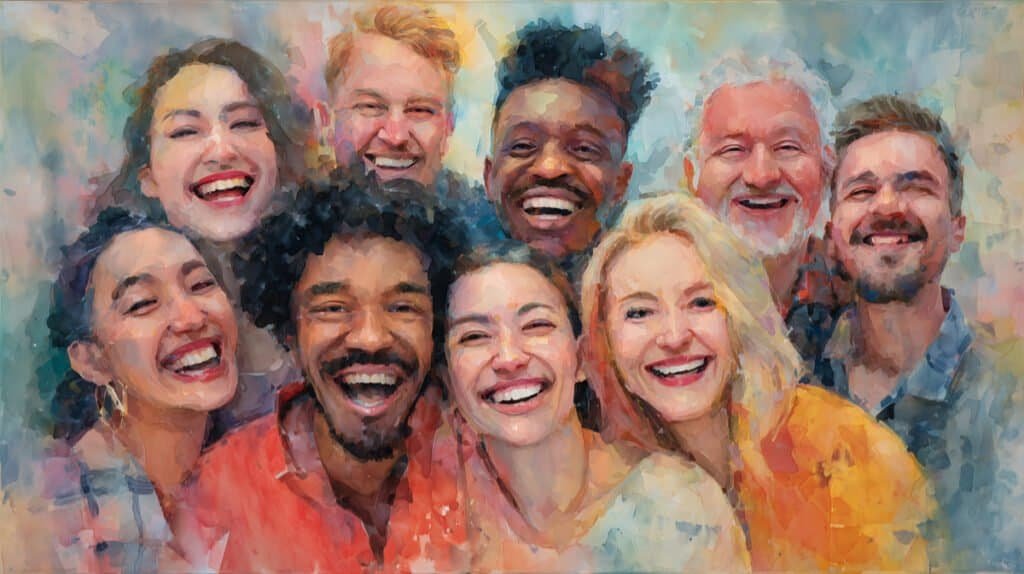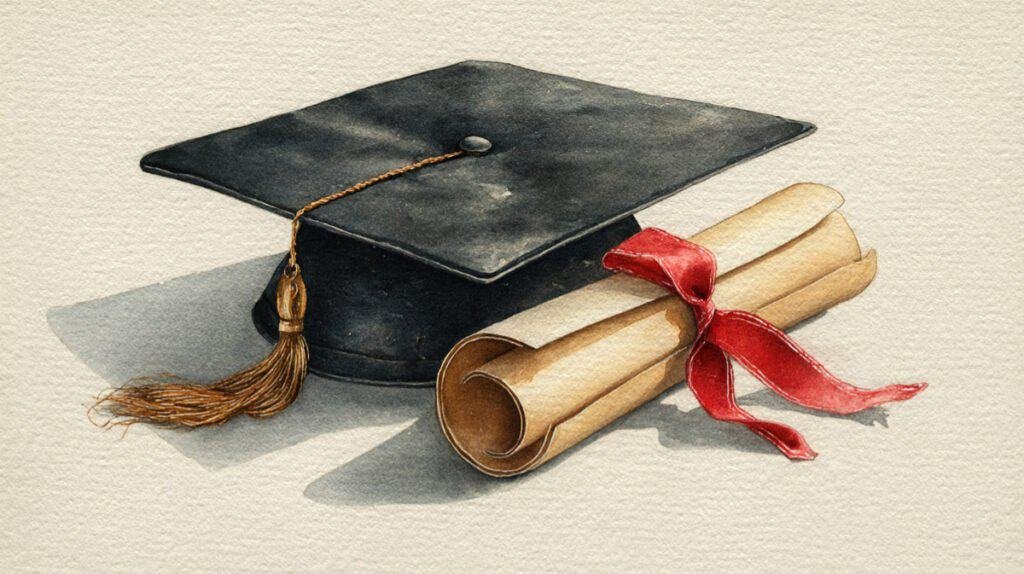Your Turn to Share
This is an “All About You” post—where your story matters more than mine. Here’s today’s question:
If you suddenly became wealthy, whose life would you want to help financially—and why them?
Not what you’d buy for yourself. Not the charities you’d support (though those matter too). But the specific people whose lives you’d want to change if you had the resources to do it.
Maybe it’s someone who helped you when you needed it most and you’ve always wanted to return the favor. Maybe it’s someone quietly struggling who would never ask for help. Maybe it’s someone whose kindness changed your life in ways they’ll never fully know.
Maybe it’s family, or maybe it’s that friend who was there during your hardest chapter. Maybe it’s someone from your past you’ve lost touch with but still think about. Maybe it’s several people for completely different reasons.
Whoever comes to mind when you imagine having the power to genuinely help someone—that’s what I’m curious about.
Why This Question Reveals Something
When people imagine getting rich, they usually think about what they’d buy—the house, the car, the travel. But who we’d want to help shows what really matters to us and who shaped us.
The people who come to mind aren’t random. They’re the ones who mattered during pivotal moments. The ones who showed up when it wasn’t convenient. The ones whose struggles we witnessed but couldn’t fix. The ones who gave without expecting anything back.

Sometimes it’s about repaying kindness. Sometimes it’s about easing pain you’ve had to watch without being able to fix it. Sometimes it’s about honoring someone who changed your life in a huge way but you never really got to thank them.
And sometimes the person you’d most want to help is someone who’d be completely surprised you were thinking of them at all.
Who immediately came to mind when you read the question?
The Different Reasons We’d Choose Someone
People want to help others financially for various reasons, all of them valid:
Debt of gratitude: Someone helped you financially or otherwise when you were struggling. They never asked for repayment, never held it over you, maybe even forgot they did it. But you didn’t forget. If you had wealth, paying back that kindness would mean everything to you—not because you owe them, but because their generosity shaped your life.

Witnessed struggle: You’ve watched someone you care about work exhausting hours, sacrifice constantly, stress over bills despite doing everything right. They’re good people who got a raw deal. If you could lift that weight, you would in a heartbeat—not from pity, but because you respect them and care about them.
Missed opportunity: Someone who showed exceptional kindness to you during a difficult time, but you lost touch or never properly thanked them. Years later, you still think about them and wish you could let them know how much that moment mattered. Financial help would be a tangible way to say what you never got to say.
Taking care of family: Aging parents who sacrificed for you. Adult children struggling to establish themselves. Siblings who got a rougher deal from life’s lottery. The people who you can’t help but worry about.
Quiet heroism: Someone who makes the world better in small, consistent ways that nobody notices or rewards. Teachers who use their own money for classroom supplies. Neighbors who check on elderly residents. People whose kindness is constant but invisible. You’d love to validate that goodness with security they’ve never had.
Dreams that never got a chance: Someone whose dreams got pushed aside because life got in the way—the artist who took the office job, the student who dropped out to support family, the entrepreneur whose idea was solid but funding was nonexistent. You’d want to give them the chance to try again.
Which of these reasons feels most like yours?
The Specific Impact You’d Want to Create
Beyond choosing someone, what would you actually want to do for them?
Immediate relief: Pay off the medical debt. Clear the mortgage. Cover the tuition. Eliminate the specific financial pressure that’s been crushing them. The gift of breathing room.
Long-term security: Set up something that doesn’t just solve today’s problem but creates lasting stability. An investment that generates income. A home they actually own. A buffer against future emergencies. Freedom from constant financial anxiety.

Helping their dreams come true: Pay for the thing they’ve always wanted to do but couldn’t afford. The education they postponed indefinitely. The business they’ve been planning for years. The travel they’ve only imagined. Give them permission and resources to pursue what matters to them.
Dignity in aging: Ensure aging parents can retire comfortably rather than working past exhaustion. Provide quality care without the guilt of burdening family. Let them enjoy their remaining years without financial stress overshadowing everything.
Setting up their kids: Help someone’s kids have opportunities they didn’t have—Education funds. Safe neighborhoods. Experiences that broaden horizons. Break the pattern of struggle that runs in families.
What kind of impact would matter most to you?
The Questions Behind the Choice
When you think about who you’d help and how, other questions emerge:
Would you tell them? Some gifts are better anonymous—the mortgage mysteriously paid, the debt that disappears, help that arrives without obligation or awkwardness. Other times, you’d want them to know it came from you specifically, to show them what they meant to you. Which would this be?
How would you frame it? As repayment for past kindness? As recognition of their struggle? As investment in their potential? As love without strings? How you say it matters as much as the money.
Would they accept it? Pride makes some people refuse help even when desperately needed. How would you navigate offering assistance to someone who’s spent their life insisting they don’t need anything from anyone?
What would it change? For them, obviously—but also for your relationship with them. Would financial help complicate things or bring you closer? Would it create obligation where none existed before, or would you both be able to relax and not need to talk about it?

Who are you not choosing? Sometimes the interesting question isn’t who comes to mind first, but who doesn’t—and why. The family member you’d expect to feel obligated to help but don’t. The friend who’d ask but you wouldn’t choose to offer. What does that reveal?
What makes you hesitate, if anything, about the person who came to mind?
When “Who Would You Help” Gets Complicated
Not every answer to this question is straightforward. Sometimes the messy parts are what make it interesting.
Maybe the person you’d most want to help is someone you’re no longer in contact with. Would sudden wealth give you permission to reach out after years of silence? Would offering financial help be a bridge or an awkwardness?
Would you want to help someone who created some of their own problems? Would you only help if they changed how they do things? Or would you help unconditionally, accepting that money might not solve their underlying patterns?
If multiple people deserve help equally, but you can only imagine prioritizing one, what does that choice say about what matters to you or what you’ve been through?
Perhaps the person who comes to mind is someone who has hurt you, but you still want to help them because watching their suffering is uncomfortable, knowing that you could help solve their problems. What does that say about forgiveness, or you as a person?
Look after Number One?
Maybe you realize the person you’d most want to help is yourself—not because you’re selfish, but because you’ve been stressed about money for so long that imagining relieving anyone else’s burden feels impossible until you’ve relieved your own. Or maybe you’ve been so preoccupied with responsibility that there is something you’ve never done but always wanted to do.
Is this straightforward for you, or surprisingly complicated when you really think about it?
What This Reveals About Gratitude and Love
The people we’d help if we could and the reasons why—show what we really care about in ways we don’t usually say out loud.
They show who shaped us during vulnerable moments. Who we trust with access to our resources. Who we believe deserves better than circumstances have given them. Who we’d truly want to honor.
They also reveal our values: Do we prioritize family obligation or chosen connection? Paying back someone who helped you, or stopping someone from hurting down the road? Helping the most deserving or the most desperate? Helping people who’d make the most of it, or people who need it the most?

There’s no correct answer. Just your answer—which tells you something fundamental about who you are and what matters to you.
What does your choice reveal about your values?
The Invitation to Share
This is your space to tell your story about who you’d help and why.
Maybe you have a clear, immediate answer—someone who’s been on your mind for years, waiting for the day you could do something meaningful for them. Maybe you have several people and would struggle to choose. Maybe your answer surprised you when you really thought about it.
Share as much or as little as you want. You don’t need to use real names if privacy matters. You don’t need to explain every detail of your reasoning. You just need to be honest about who comes to mind and why.
Your answer might inspire someone else to appreciate people in their own life they’ve taken for granted. Your reasoning might help someone understand their own values better. Your honesty might give someone permission to prioritize the people who matter most to them.
If you suddenly became wealthy, whose life would you want to help financially—and why them? What would you want to do for them, and what would that mean to you?

Share your thoughts below. I respond to every comment, and your experience often helps others more than mine does.





I’ve got to be honest, I’d help out the following people: